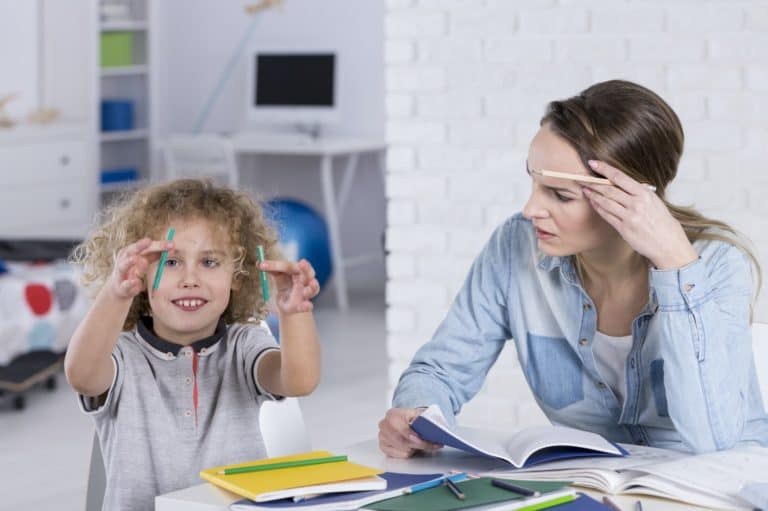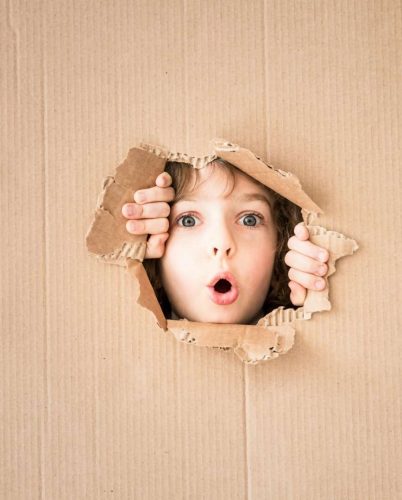The symptoms of Autism can vary from person to person, however, the main two currently used to diagnose autism are as follows:
- Persistent deficiencies in communication and social interaction.
- Restrictive and repetitive patterns of behavior, interests, or activities.
Some children may develop normally during the first months or years of life, but then suddenly they become introverted, lose language skills that they have acquired, and some become aggressive. In general, the signs begin to be observed at age 2.
Autism spectrum disorders are likely to have a unique behavioral pattern and level of severity for every child, from very low to high functioning.
In addition to speech deficiencies and behavioral patterns, parents may notice differences in how their child relates to peers or children their age.
Some behavior patterns and social differences of children with autism:
A child or adult with Autism Spectrum Disorder may have limited and repetitive interests, activities, or behavior patterns, and may even have any of the following signs:
- Does not maintain eye contact or establishes very little eye contact.
- Absence of seeking comfort in times of distress.
- Does not respond to the smile or other facial expressions of the parents.
- Lack of imitation capacity.
- Does not use toys or other objects to represent people or real life in simulated games.
- Absence of imaginative activity, such as playing at being an adult.
- Does not look at the objects or events that parents are looking at or pointing to.
- Does not point to objects or events to get parents to look at them.
- Does not take objects of personal interest to show them to the parents.
- Irrational insistence on following routines with all their details.
- Does not usually have adequate facial expressions.
- Does not express emotions or feelings and seems not to be aware of the feelings of others.
- Has difficulty recognizing non-verbal cues, such as interpreting other people’s facial expressions, body postures, or tone of voice.
- He does not show concern (empathy) for others.
- Is unable to or is not interested in making friends.
- Repeats exactly what others say without understanding the meaning (usually called mechanical repetition or echolalia).
- Refers to himself as “you” and to others as “I”, and can mix pronouns.
- Often doesn’t seem to want to communicate.
- Does not respond when called by name, but it does respond to other sounds (such as a car horn or a cat’s meow).
- Does not say single words at 16 months.
- Prefers routines, order, and rites and distresses with the slightest change; has difficulty with changes or transitions from one activity to another.
- Rocks, spins, sways, twists fingers, walks on tiptoe for a long time, flaps hands (behaviors called “stereotypical”).
- Has problems with coordination and display strange, rigid, or exaggerated body language.
- May have a good memory, especially for numbers, lyrics, songs, television commercials, or a specific topic.
- Does not speak or has a late development of speech, or may lose language or other social achievements, generally between 15 and 24 months (which is often called regression).
- Presents repetitive and obsessive behaviors.
- Does activities that could harm him, such as biting or hitting his head.
- Becomes obsessed with some unusual activities, which he does repeatedly throughout the day.
- Is more sensitive than usual to light, odors, sounds (noises), textures, and physical contact, but could be indifferent to pain or temperature.
- Is dazzled by the details of an object, such as the wheels that turn in a toy car, but does not understand the general purpose or operation of the object.
- Has specific preferences regarding foods, such as eating only a few foods or not eating foods with a certain texture.
- Becomes obsessed with an object or an activity with abnormal intensity or concentration.
- Looks or contemplates in an unusual way, looks at objects from unusual angles.
- Resists hugging and caressing; Furthermore, it seems that prefers to play alone and abstracts into his own world.
- Can’t have a conversation or start a conversation, or maybe start a conversation just to ask for something or name items.
- Speak in an abnormal tone or rhythm, and may use a sing-song voice or speak like a robot.
- Repeats words or textual phrases, but does not understand how to use them.
- Does not seem to understand simple questions or directions.
- Approaches inappropriate social interactions behaving in a passive, aggressive or disturbing way.
- Some children have learning difficulties and some have lower than normal signs of intelligence.
- Other children have an intelligence between normal and high, and learn fast; although they have problems to communicate, apply what they know in daily life, and adapt to social situations.
With the help of therapies and as they mature, some children with autism spectrum disorders socialize more with others and show fewer behavioral disturbances. Some, usually those with less serious problems, can lead a normal or near-normal life over time. However, others continue to have difficulties with language or social skills and, in the teenage years, their behavioral and emotional problems may worsen. So it is very important to try to help them as much as possible so that in the future they will have a better quality of life.













